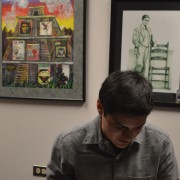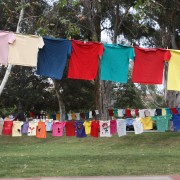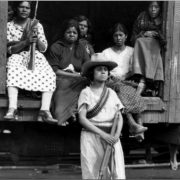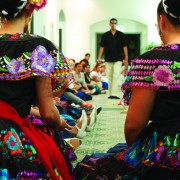Homeless at UCLA: Financial strain causes students to make their school a home
During midterms and finals, UCLA becomes a temporary home for fatigued students slumped over half-opened books. But for some, sleeping on campus has become more permanent.
“The longest I stayed was last quarter. I stayed here for two whole weeks,” said Jose a second-year molecular cell and developmental biology student.
As an AB540 student, Jose doesn’t receive financial aid, and is unable to afford housing. Sleeping on an office floor three days a week has become the norm. Jose’s commute is five hours round trip; he boards four buses, traveling 30 miles each way.
Packing up a large duffle bag as if going on vacation, Jose prepares for his two week stay on the floor in a small corner office.
The U.S. Department of Housing and Urban Development states that a person is classified as homeless if their nighttime residence is a public place, not intended as “a regular sleeping accommodation for human beings.”
While he does not consider himself homeless, Jose does not deny the impact his situation has on his academic performance.
“Sleeping on the floor gets to you, your back hurts and then you don’t sleep sometimes you just do all nighters, so it does affect you academically,” said Jose. “Not having food to eat that affects you mentally.”
Jose is reluctant to contact administrators out of fear of being told he can’t sleep in the office he regularly occupies.
“I can’t categorically tell you that I’ve dealt with a homeless student,” said Enku Gelaye, Executive Officer of Student Affairs.
Gelaye leads the Economic Crisis Response Team (ECR) in the office of the Vice Chancellor, a group of twelve university administrators that develop solutions for students experiencing financial crisis.
Through a referral system, the ECR Team connects students with on-campus and off-campus resources.
Though Gelaye is confident that solutions for students experiencing housing issues due to financial crisis can be found in their financial aid package, she acknowledges that for undocumented students this is not an option.
“Where I’ve seen the most direct impact with the increase of tuition has been for undocumented students; we just don’t have a financial aid solution,” said Gelaye.
The recent increases in tuition and proposed $500 million cuts to the University of California system, students face increased financial challenges.
Anticipating a rise in commuter students, Gelaye stated that talks have begun regarding possible sleep options on campus, although she is not sure what those would look like and will not be implemented soon.
For the past few years, AB540 students have organized a “crash catalogue” to address housing needs through the student group Improving Dreams, Equality, Access and Success (IDEAS).
According to Charlene Gomez, Membership Chair for IDEAS, the network currently consists of six off-campus residents that can house students.
Of the 100 students on the list, 50-75 utilize the service each quarter by contacting Gomez. Gomez then arranges accommodations for the student.
The catalogue officially began in 2010, though it was informally practiced prior to this time.
“AB540 students are not welcomed institutionally as far as what resources they have access to,” said Gomez, “so we have to create our own.”
While Jose has used the catalogue service in the past, the limited availability has forced him to continue sleeping on the office floor. Until an alternative housing option becomes available, he will roll out his sleeping bag and settle in for another night on campus.











Leave a Reply
Want to join the discussion?Feel free to contribute!